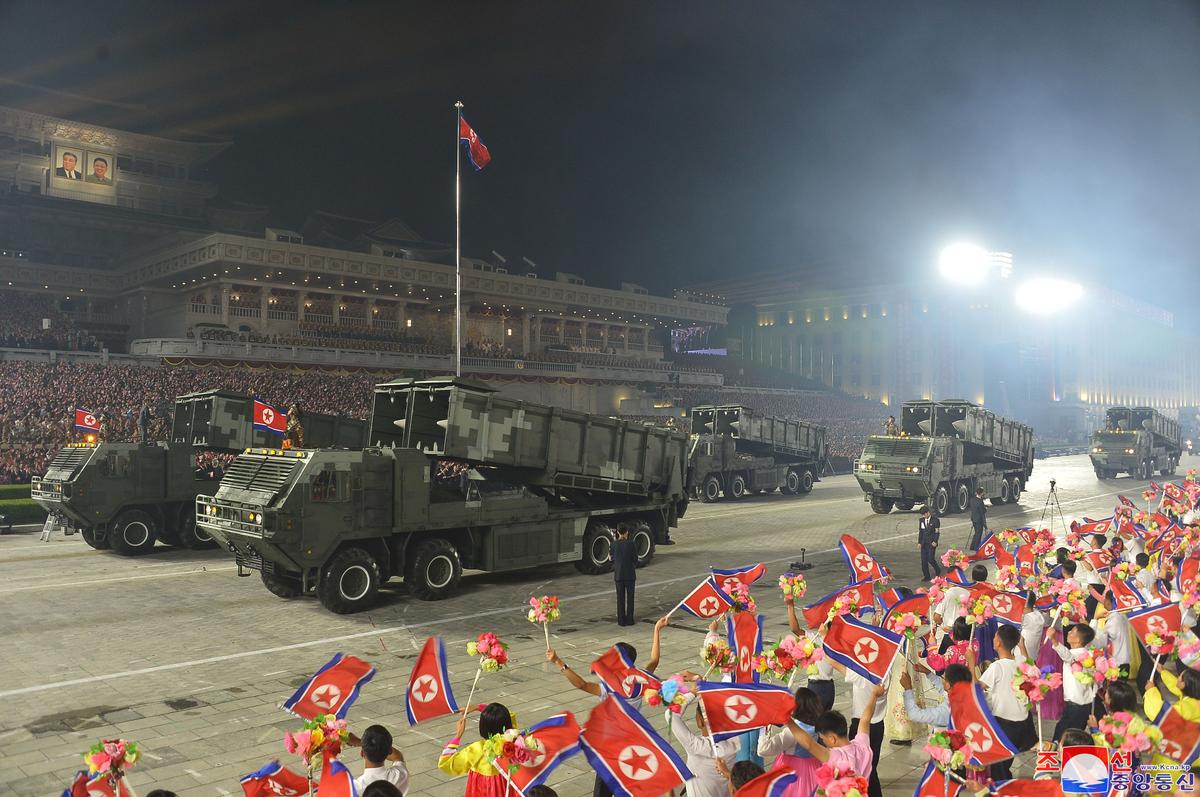
Missile launchers on display during a military parade in Kim Il Sung Square, Pyongyang, North Korea, 27 July 2023. Photo: EPA-EFE/KCNA
NATO Secretary General Mark Rutte has confirmed that North Korean troops have been deployed to Russia’s southwestern Kursk region, where a Ukrainian military incursion has been ongoing since August, Reuters reported on Monday.
Rutte said that the deployment of North Korean troops was a sign of Vladimir Putin’s “growing desperation”, adding that “over 600,000 Russian soldiers” had been killed or wounded in Putin’s war to date and that he was “unable to sustain his assault on Ukraine without foreign support”.
Ukraine’s military intelligence chief Kyrylo Budanov told American news outlet The War Zone last week that the first contingent of North Korean troops had been due to arrive in the Kursk region on Wednesday, adding that 11,000 North Korean infantry troops were currently undergoing training in Russia’s Far East.
While South Korean intelligence reports confirmed earlier this month that Pyongyang was preparing to deploy troops to bolster Russia’s war effort in Ukraine, Kremlin spokesperson Dmitry Peskov described them as “conflicting” and advised that they “should be treated as such”.
At last week’s BRICS summit in Kazan, Putin made no attempt to deny that North Korean soldiers were being trained to fight alongside Russian forces in Ukraine, noting that the military partnership pact between Russia and North Korea contained a mutual defence clause and claiming that Russia “never doubted that the North Korean leadership treats agreements seriously”.
In a post on X on Monday, Andriy Yermak, Ukrainian President Volodymyr Zelensky’s chief of staff, confirmed that North Korean troops were “already in the Kursk region” and urged Ukraine’s allies to provide the Ukrainian military with weapons and a “clear plan” to prevent “North Korea’s expanded involvement in the war in Europe”.
“Today, Russia brings in North Korea; next, it could broaden their engagement, and then other autocratic regimes may see that they can get away with this and come to fight against NATO,” Yermak wrote. “The enemy understands strength. Our allies have this strength.”
